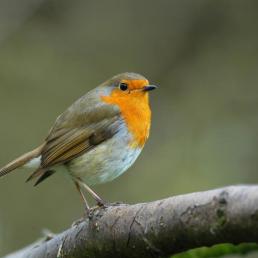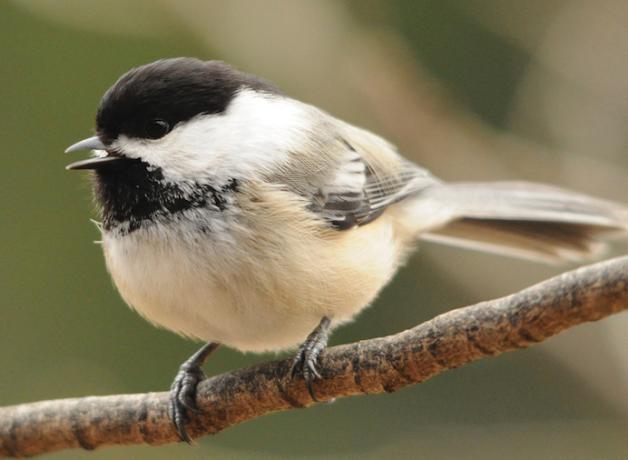This is BirdNote.
[Black-capped Chickadee call, ML 169032]
In higher animals, the brain is like a Lamborghini — amazing engineering, but expensive to run. In a human, the brain uses about 10 times more energy than any other organ.
A bird's system is exquisitely attuned to this expense. And among several carefully studied species, like the Black-capped Chickadee, a very smart adaptation has evolved: [Black-capped Chickadee call, ML 169032]
You can usually hear the Black-capped Chickadees call throughout fall and winter. But they aren’t singing much. They don't need to. So in their brains, the centers that control how they learn and give voice to songs shrink. But as spring nears and the birds resume singing in earnest, these control centers in the brain rejuvenate. [Black-capped Chickadee song, ML 163374]
This same seasonal fluctuation appears true of the chickadee’s hearing ability. Experiments have shown that a bird’s hearing is more acute in spring. So is their ability to interpret sounds. This may help male birds tell the difference between a neighboring male he already knows and an interloper who's infringing on his territory. And more finely attuned hearing can also help a female bird rate the songs of males she hears, so she can pick out the best partner. [Black-capped Chickadee song, ML 163374]
All of which means that seasonal changes in the gray matter itself put birds’ brains in a class by themselves.
For BirdNote, I'm Mary McCann.
###
Bird sounds provided by The Macaulay Library of Natural Sounds at the Cornell Lab of Ornithology, Ithaca, New York. Black-capped Chickadee call and song [163374 and 169032] recorded by M D Medler
BirdNote’s theme music was composed and played by Nancy Rumbel and John Kessler.
Producer: John Kessler
Executive Producer: Dominic Black
© 2016 Tune In to Nature.org March 2015/2018 / 2021 Narrator: Mary McCann
ID# BCCH-08-2015-03-14BCCH-08









